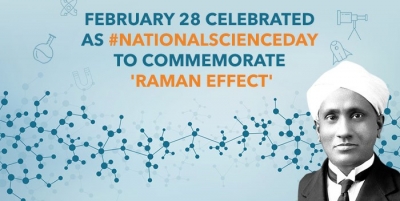
India celebrates National Science Day every year on February 28 to mark Sir C.V. Raman’s discovery of the scattering of light, also known as the “Raman effect”. For his discovery, physicist Raman was awarded the Nobel Prize in Physics in 1930. The recognition put India on the global science map, but proofs to India’s scientific acumen go all the way back to the 5th century A.D, when ancient Indians developed the concept of zero. Zero, the cornerstone of modern mathematics and physics, is seen as one of the greatest innovations in human history. There are records of ancient Indians being among pioneers in irrigation, veterinary medicine, cataract surgeries and atomism. Indian astronomy also has a long history stretching from pre-historic to modern times.
Colonial era exposed a number of Indians to foreign institutions. Scientists from India also appeared throughout Europe and their work saw recognition and acceptance on a wider platform. Since Independence, India has built a number of satellites and sent probes to the Moon and Mars, established nuclear power stations, acquired nuclear weapon capability and became self-sufficient in the production of food and medicines. Not to mention the developments in meteorology, communication and Information Technology.
Picture Credit : Google
